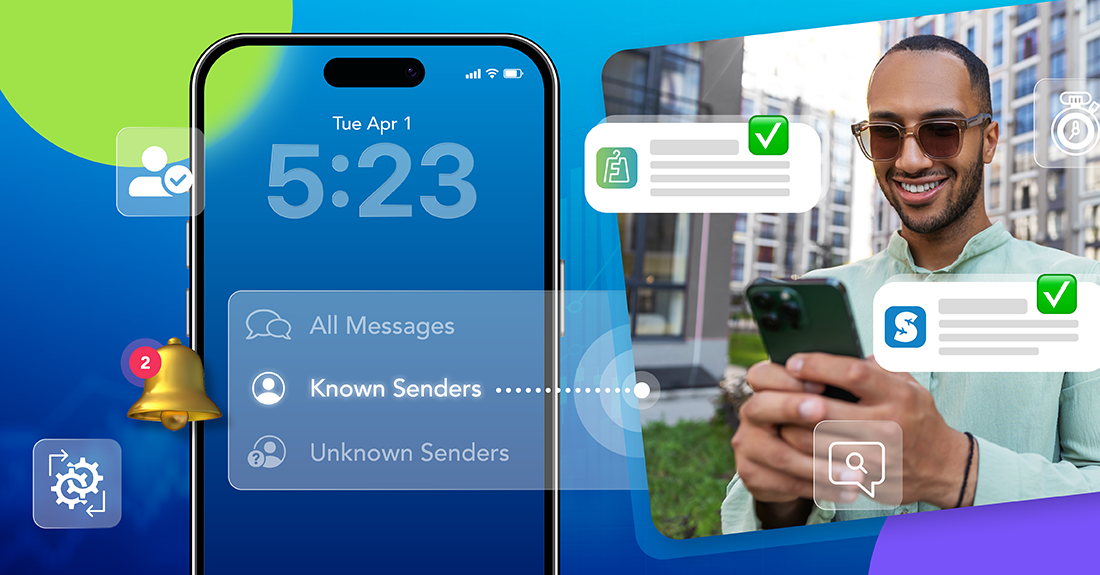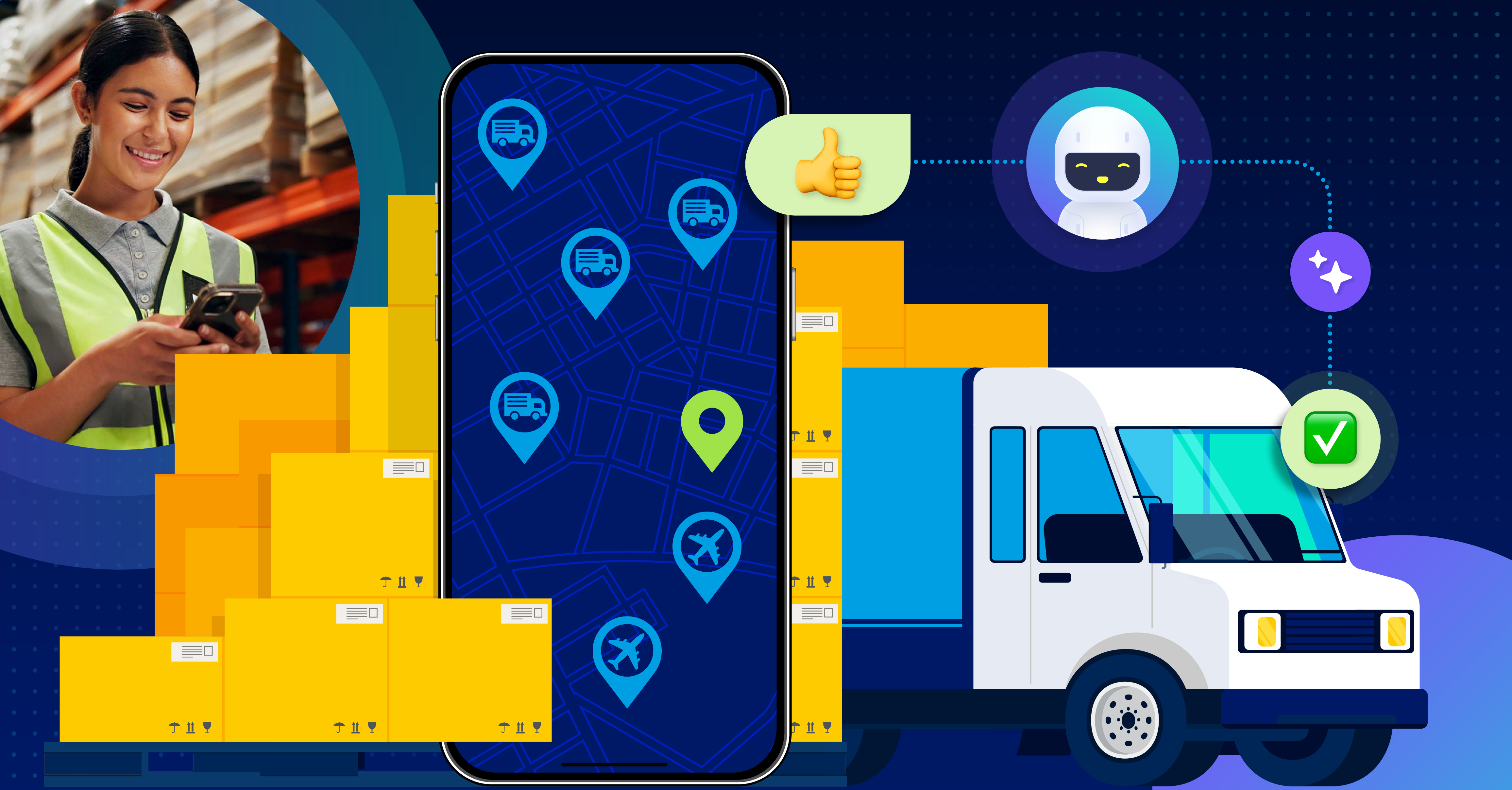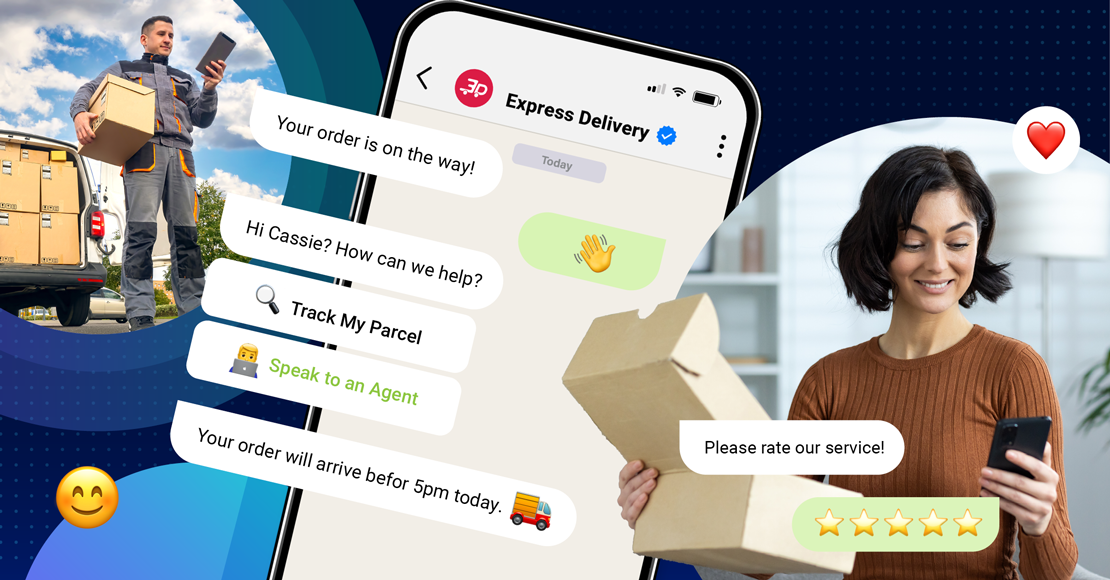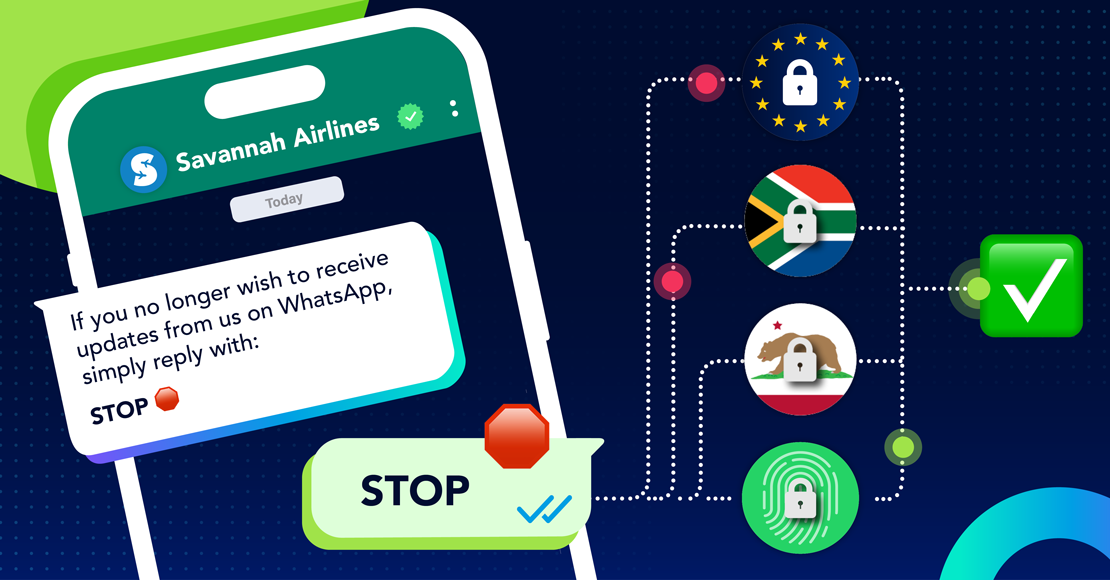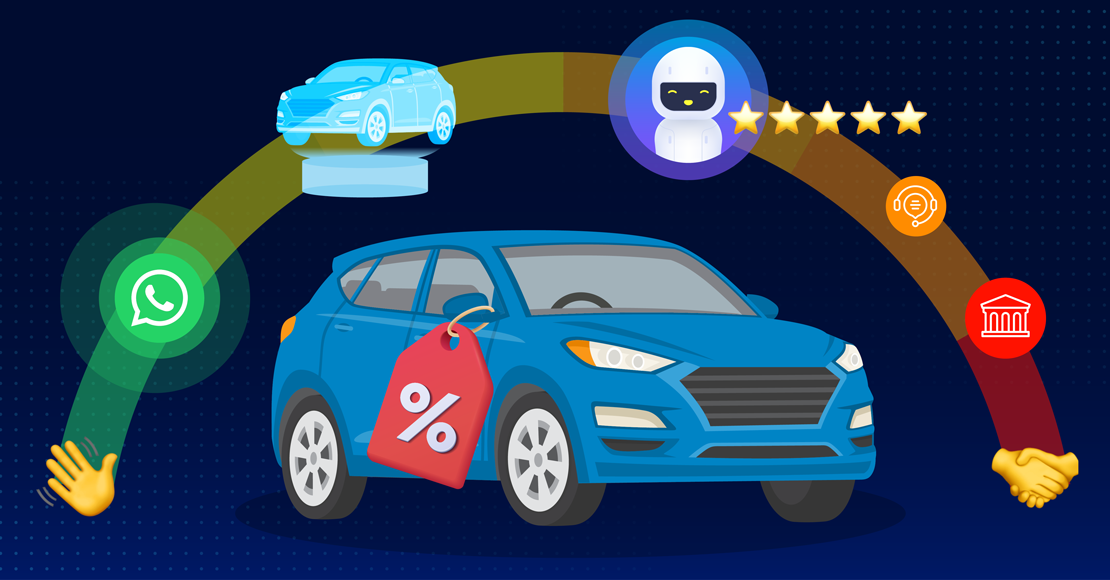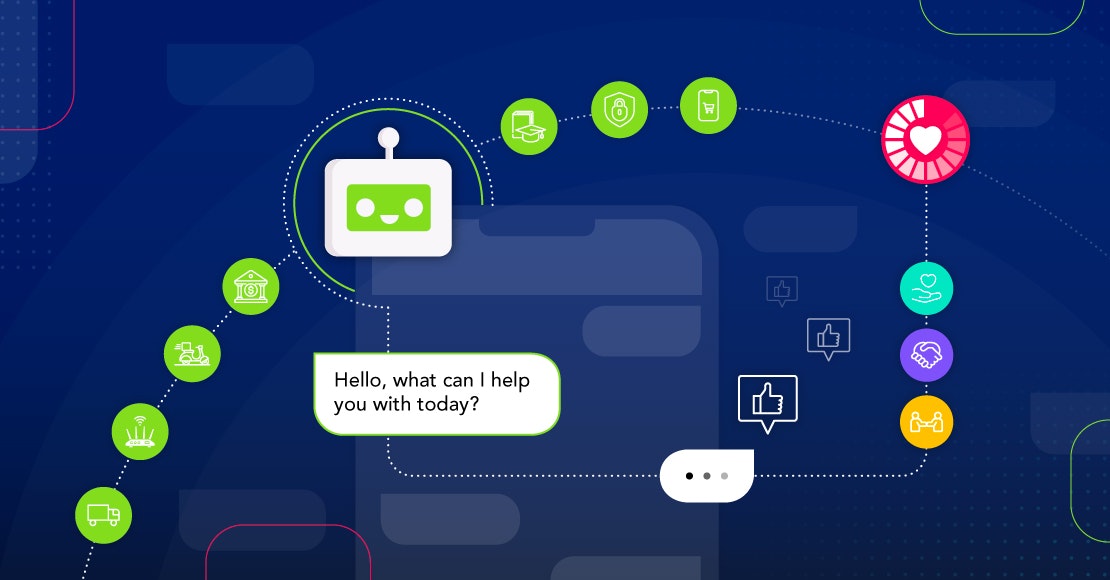
“By 2024, Insider Intelligence predicts that consumer retail spend via chatbots worldwide will reach $142 billion—up from just $2.8 billion in 2019… Nearly 40% of internet users worldwide prefer interacting with chatbots than virtual agents, and with major industries … turning to digital technology, chatbots will likely increase in popularity moving forward.” – Insider Intelligence
As artificial intelligence accelerates, and natural language processing becomes commonplace, modern consumers are becoming more comfortable interacting with chatbots. In fact, with remote interactions a dominant trend, many feel more secure asking a WhatsApp chatbot for assistance than having to speak to a real-life agent. In cutting-edge technology industries, this form of communication is particularly beneficial for customers who have come to expect superior technological interactions. It not only serves to build better customer relations, WhatsApp chatbots also cut company costs in the long run. Here’s a look at how this is achieved.
How do WhatsApp chatbots drive the tech industry?
“By 2022, 70% of white-collar workers will interact with conversational platforms on a daily basis. This expected growth is on par with the increase of millennials in the workplace. Because chatbots cater to millennials’ demand for instant, digital connections that keep them up to date at all times, millennials will likely have a large impact on how well and how quickly organizations adopt the technology.” - Gartner
1. Conversational chatbots for eCommerce
The eCommerce industry has exploded over the past few years as online shopping becomes an indispensable part of the modern retail experience. According to Statista, in 2020, more than 2 billion people purchased goods and services online, with e-retail sales surpassing $4.2 trillion globally – and projections of growth to $7.39 trillion by 2025. But if you really want a part of the digital retail space, then incorporating conversational chatbots is essential. There simply aren’t sufficient customer support staff to manage the number of consumers buying online, which is why chatbots are invaluable. Conversational chatbots help this industry save money while assisting customers.
2. Chatbots support ISP
With WhatsApp chat, internet service providers (ISP) are able to supply omnichannel self-service that responds to customers’ frequently asked questions. The chatbot can be fed the script to effectively assist in dealing with minor internet challenges, while agents are tasked with more complex customer enquiries. Chatbots are also able to gather real-time information so that they can assist in resolving ongoing issues, while engaging with customers in a variety of languages – making it a global solution. In fact, commercial chatbots are also able to assist customer subscriptions by accepting digital payments.
3. Chatbot support for banking
“In an industry built on having human connection at branches, banks and credit unions are now faced with the challenge of keeping consumers engaged in an age of digital banking and social distancing. Part of retaining consumers in this changed environment is providing excellent tools, resources, and services as part of the customer experience.” - Forbes
Technological innovation and increased cybersecurity have resulted in a drive of the mobile banking sector – but customer assistance is still required. Chatbots provide financial institutions with 24/7 customer support in the form of a personal banker, loan service agent, wealth manager, and ATM locator. Chatbots also allow banks to build security protocols by integrating 2-factor authentication, authorization tools, firewalls, network, and built-in monitoring – among others.
4. Chatbots in the security industry
Security remains a top concern and chatbots are increasingly the go-to platform for communicating security threats and logging security issues in this sector. WhatsApp chatbots streamline the sharing of time-sensitive security threats for more immediate reaction. They also allow for the centralization of data so that trends in crime can be picked up across areas, and affective responses initiated. By using chatbots, customers are also benefitting from a record that indicates how long a response will take in an emergency.
5. Chatbots for food delivery
Online food services – or food tech as it’s known – has grown substantially in the past few years with Uber Eats and similar models now commonplace. Ensuring convenience in food ordering and delivery is paramount for the industry, which is where chatbot technology is so beneficial. The chatbot can provide consumers with the various menu offerings, with the order sent via the same platform, and delivery information shared. The commercial chatbot can even facilitate payment so that the consumer doesn’t have to move to make a meal!
6. Chatbots for the logistics industry
The logistics industry is incredibly competitive, and with the ongoing challenges of the pandemic, labour shortage, political conflict, and the climate crisis, it’s an increasingly difficult industry to navigate. Communication remains one of the biggest challenges, however, which is why chatbots are an increasingly influential addition to internal and external communication systems. Using a chatbot, those in the logistics industry can also generate leads while monitoring hundreds of thousands of support tickets. This reduces employee pressure, increases client satisfaction, and cuts costs.
7. Chatbots for online education
“Even before COVID-19, there was already high growth and adoption in education technology, with global edtech investments reaching US$18.66 billion in 2019 and the overall market for online education projected to reach $350 Billion by 2025. Whether it is language apps, virtual tutoring, video conferencing tools, or online learning software, there has been a significant surge in usage since COVID-19.” – World Economic Forum
The surge in online education has created a need for more student support. Teachers and lecturers across the globe cannot meet the 24-hour needs of students, which is why chatbot technology has been so useful. Through this platform, students can access learning materials and course outlines, upload documents, provide and receive feedback, register for new courses, as well as get real-time alerts and information.
What are the major benefits of WhatsApp chatbots for tech?
Chatbots are effective support tools for the tech industry in a number of ways, but the two major benefits are:
1. The reduction in overhead costs: Chatbots mitigate the need for excess support agents while providing faster services to a larger customer base. This translates to huge company savings.
2. Constant customer support: It doesn’t matter where in the world your customers are, or what they need, chatbots are able to provide them with instant support. This builds your customer relations and results in a better brand experience.
Find out how technology chatbots can drastically improve your brand by contacting industry experts, Clickatell, today.
Step into the future of business messaging.
SMS and two-way channels, automation, call center integration, payments - do it all with Clickatell's Chat Commerce platform.

